Our Disrupting Unconscious Bias Training
Our Disrupting Unconscious Bias Training
Our Disrupting Unconscious Bias Training
Our Training Offer
We support all stakeholders in becoming more aware of different types of conscious and unconscious bias; in becoming more confident in identifying and calling out/ in bias as it manifests itself in our behaviours and decisions; in becoming more competent in changing processes and practices to remove opportunities for bias.
We can deliver face to face and virtually, for twilights, INSETs and conferences.
- Developing consciousness of how and when bias manifests itself
- Challenging stereotypes as they arise
- Recognising the impact that bias has on our behaviours and decisions
- Understanding the link between bias, microaggressions and discrimination
- Identifying the impact bias has on career pathways
Our school is on a journey to become a truly anti-racist school – this is an important and ambitious goal and one that needs inclusive leaders with ‘humility and a ferocious will’ . DiverseEd is supporting our school on this journey by providing inspiration, support and resources to empower our school community to change together.
Rae Potter, Headteacher
Our Creating Inclusive Workplaces Training
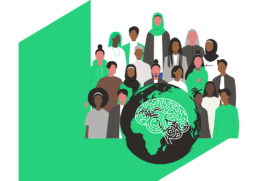
Our Creating Inclusive Workplaces Training
Our Creating Inclusive Workplaces Training
Our Training Offer
We support all stakeholders in schools, colleges and trusts, in developing their consciousness, confidence and competence in ensuring that their workplace is inclusive.
We will create a safe space for you to explore your identity, power and privilege. We will create a brave space for you to consider how you can leverage your privilege and expand your sphere of influence. We will create an intentional space for you to review how small changes can make a big impact for how included people feel.
We can deliver face to face and virtually, for twilights, INSETs and conferences.
- Understanding what it means to be included and to belong in a workplace
- Ensuring that we are being intentionally inclusive in everything we do within our workplaces
- Raising awareness of the societal, structural and systemic barriers impacting different individuals and groups
- Challenging language, behaviours and practices that are not inclusive
- Reviewing how we show up how we interact and we hold space for each other
A safe space was created for staff to share. Great starting point for our DEI journey as a school.
Clare Pellew, Deputy Headteacher
The CPD sessions provided by Diverse Educators were well pitched, planned and delivered, provided much food for thought and will empower our staff to develop and embellish the EDI work that is already underway across the curriculum – it was excellent!
Headmaster, King Edward VI Handsworth Grammar School
Fully embedding a culture where diversity is celebrated and championed is a complex process. The team at Diverse Educators were able to help define the issues and work with school leaders to plan the next steps in our journey. Their facilitators are knowledgeable, credible and warm and their sessions praised by all our staff.
Ken Vernon, Headteacher, The City of Leicester College
Our Addressing Microaggressions Training
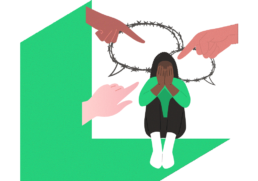
Our Addressing Microaggressions Training
Our Addressing Microaggressions Training
Our Training Offer
We support all stakeholders in becoming more conscious of the impact of our language and behaviour on others, in becoming more confident in addressing microaggressions when we see and hear them, in becoming more competent in the skills we need to develop to model inclusive language and behaviours.
We can deliver face to face and virtually, for twilights, INSETs and conferences.
- Understanding what microaggressions are.
- Recognising prejudiced attitudes targeting marginalised groups.
- Reflecting how microaggressions affirm stereotypes.
- Being aware of the impact of microaggressions on individuals and on groups.
- Exploring the difference between microinsults, microassaults and microinvalidations.
The training was engaging, clear and delivered with openness and honesty. It promoted great discussion between different groups of staff.
Sharon Khan, Assistant Headteacher
Hannah and the team at DiverseEd have the unique ability to foster conversations that lead to genuine reflection and longer-lasting change. The deep knowledge base and the skillful and personable manner in which Hannah delivered the session empowered our team to self-reflect and openly consider how we can use our lived experiences and in some cases privilege and power to make our Trust and schools a place where all can feel that they belong.
James Roach, CEO, Inclusive MAT
Our Parents and Carers Training
Our Parents and Carers Training
Our Parents and Carers Training
Our Training Offer
We support schools and colleges (primary and secondary, in state and independent, in the UK and internationally) in creating space to hold conversations about DEI with their parents and carers.
We can deliver face to face and virtually, for Parent Associations, Parent Working Parties and Parent Ambassadors.
We raise consciousness, develop confidence and build competence in DEI being everyone’s responsibility, in all stakeholder groups.
- Exploring our own identity and belief systems
- Understanding levels of belonging
- Developing inclusive behaviour
- Becoming upstanders, not bystanders
- Finding our voices to speak out
- Having courageous conversations
Fantastic speakers, staff were fully engaged and inspired by both Hannah and Bennie. If you haven’t used Diverse Educators on your DEIB journey then you must get them in!
Emma Stanhope, Vice Principal, St Mary’s School
NAHT
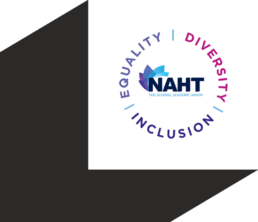
NAHT
Our commitment
NAHT is dedicated to promoting equality for all of its members. We aim to achieve sector-wide equal and fair treatment for everyone working and learning in UK schools and equal representation and engagement within our structures and democratic processes.
This commitment is enshrined in NAHT’s constitution, which states NAHT will ‘promote equality for all including through:
- Collective bargaining, publicity material and campaigning, representation, union organisation and structure, education and training, organising and recruitment, the provision of all other services and benefits and all other activities.
- The union’s own employment practices.
- To actively oppose all forms of harassment, prejudice and unfair discrimination whether on the grounds of sex, race, ethnic or national origin, religion, colour, class, caring responsibilities, marital status, sexuality, disability, age or other status or personal characteristic.’
NAHT’s work on equality is overseen by our Diversity and Inclusion Group, a sub-committee of NAHT’s National Executive. The committee meets four times a year to discuss issues relating to diversity and inclusion within the association, the profession and schools themselves.
NAHT’s work around equality and diversity runs across all areas of the association but centres around three main areas:
- Schools
As school leaders, NAHT members are ideally positioned to create inclusive learning and working environments for all their pupils and staff, one which welcomes diversity and champions equality. NAHT supports our members by providing advice and guidance to achieve this. - The profession
NAHT is committed to ensuring the education profession (and school leadership in particular) reflects the diversity of the communities and areas that schools work in. This includes establishing inclusive working environments and cultures for staff, lobbying for equal pay for groups with protected characteristics and providing advice and support to members who have experienced discrimination and harassment. As part of its ongoing efforts to improve the diversity at a school leadership level, NAHT has also pledged its own actions and commitments to furthering equality, diversity and inclusion in education for 2021/22. - NAHT
NAHT recognises that we are most effective in representing the views and needs of school leaders when we engage with all of our membership. We are therefore committed to ensuring our own democratic structures are inclusive and reflect the diversity of the educational professionals and learners that we serve. We will take all possible steps to promote and encourage the participation of all members in our democratic processes and actively address areas of under-representation.
Our Statement of action and commitments on equality, diversity and inclusion in education for 2022/23
In September 2022, NAHT, alongside other key organisations working in the sector, outlined its new actions and commitments to help further equality, diversity and inclusion in education.
NAHT’s equality, diversity and inclusion statements
Following a resolution at NAHT Annual Conference, we are developing a series of policy statements outlining NAHT’s views and commitments around equality, diversity and inclusion. These have been developed in conversations with NAHT’s equality networks, our diversity and inclusion group, and our national executive. Click below to see our equality, diversity and inclusion statements:
Statements will continue to be reviewed and additional statements may be developed, as led by our membership.
NASUWT
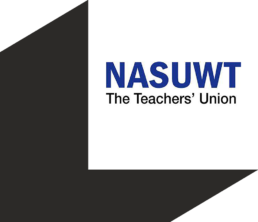
NASUWT
Equality, tolerance and respect are integral to a strong, prosperous and civilised society.
The NASUWT actively opposes all forms of harassment, prejudice and unfair discrimination whether on the grounds of sex, gender identity, race, ethnic or national origin, religion, class, colour, caring responsibilities, marital status, sexuality, disability, age, or other status or personal characteristic.
The NASUWT is committed to challenging discrimination, inequality and intolerance and recognises that schools/colleges play an essential role in this work.
The NASUWT has a diverse membership of women, men, disabled, black and minority ethnic, old and young, lesbian, gay, bisexual, transgender and intersex (LGBTI) teachers, and teachers with different religions/beliefs.
The Union is committed to promoting equality for all of its members in order to achieve equal and fair treatment at work. Equality is at the heart of everything that the Union does. An injustice to one is an injustice to all.
As part of the Union’s ongoing inequalities work, the NASUWT has submitted evidence to the Women and Equalities Select Committee inquiry Unequal Impact of Coronavirus (Covid-19) and the Impact on People with Protected Characteristics.
Quest
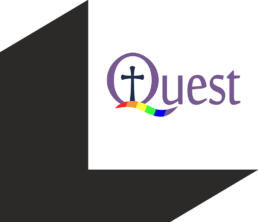
Quest
Founded in 1973, Quest is lay volunteer led and offers pastoral support and community in safe spaces to LGBT+ Catholics, our families and friends. Membership is open to all who are aged 18 or over and who support our aims, regardless of sexual orientation, gender identity or religious affiliation.
Our regional groups can be found in: Scotland, the North, the Midlands, London and the South East and the South West.
The Quest website and the regular members’ bulletin provide information and opportunities to discuss issues affecting LGBT+ Catholics, thus supporting them to explore their faith and develop their role in the Church.
Our national and regional activities include: a broad range of social, spiritual and other activities, house Masses, retreats, dialogue with Bishops and Priests, an annual conference and supporting Diocesan LGBT+ ministries. We also work with a broad range of faith-based and secular organisations in pursuance of our Constitutional Purpose.
With the help of our education lead we are exploring how we can offer support to schools and educators looking to provide safe spaces within schools whilst also meeting the demands of Catholic Teaching.
More information is available on our website.
Hidayah LGBT
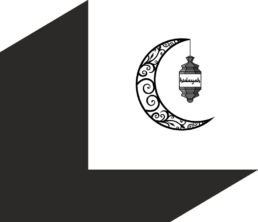
Hidayah LGBT
Our vision is to ensure our voices are heard and understood. Our mission is to provide support and welfare for LGBTQI+ Muslims and promote social justice and education about our community to counter discrimination, prejudice and injustice.
Harvey Heals Wellbeing Consultancy
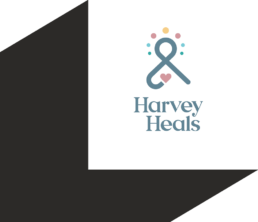
Harvey Heals Wellbeing Consultancy
Harvey Heals is a trauma-informed education and wellbeing consultancy. We champion compassionate mental health across the school system.
Harvey Heals provides accredited Reflective Practice Supervision to education professionals in groups and one-to-one sessions (accreditation approved by the British Psychological Society). We also deliver psychoeducational training on a range of subjects including Psychological Safety, Unconscious Bias, Mental Health in Schools, Racial Literacy in Schools, Mindfulness Tools, and Consultancy Services.
Our founder is Nicola Harvey, a Senior Education & Wellbeing Consultant, qualified Clinical Reflective Practice Supervisor, and Published Author. Nicola has worked in a range of settings with educators, young people, parents and professionals, passionate about making a difference.
NEU
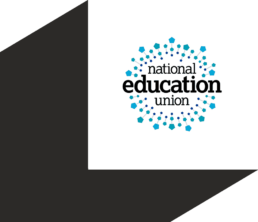
NEU
A key priority of the union is to make sure all members have a voice in the union, the workplace and broader society; and do not face barriers to promotion, representation or participation.
NEU members work hard to make education workplaces accessible and inclusive and for a vision of education for the UK with equity and social justice at its heart. The NEU campaigns against inequality and prejudice through resources on all aspects of inequality; through research; and through practical guidance to challenge the assumptions, ideas and stereotypes that lead to patterns of discrimination.
Sex and gender equality
Gender equality is not only a human right, but a necessary foundation for a peaceful, prosperous and sustainable workplace.
Race equality
Racism is a structural barrier perpetuated by individuals that lead to discrimination against a person because of their race.
LGBT+ equality
LGBT+ education professionals, pupils and families are vital members of all nursery, school and college communities and of our union.
Disability equality
The NEU works with disabled education professionals and pupils to abolish ablism, disablism and discrimination.

